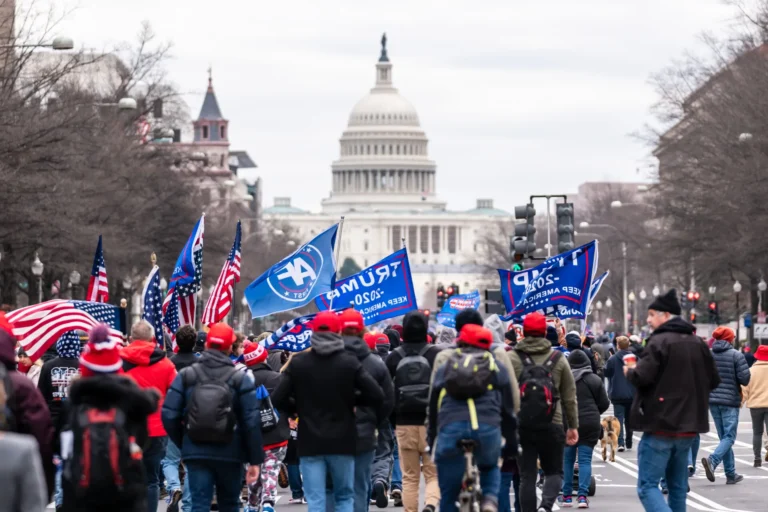By Cliff Montgomery – Mar. 4th, 2009
Republican state governors such as Bobby Jindal (Louisiana), Rick Perry (Texas) and Haley Barbour(Mississippi) recently have produced quite a spectacle with their rejection of federal stimulusdollars–specifically, their refusal to accept hundreds of millions intended to expand unemployment insurancebenefits for their citizens during this economic meltdown.
So why are they doing this? Evidence suggests it’s a simple combination of two factors:
1.) The unusual economic position the governors’ states currently enjoy
2.) The ugly fact that these GOP leaders don’t care at all about the problems of their poorest citizens.
First, the bizarre economic position of the governors’ states. The “Great Recession” appears to have mostseverely hit those states closely tied to mortgage markets, the auto industry, etc. States with less direct ties tothose markets, though still hurting, do not appear to have been affected nearly as much.
The Labor Department’s Bureau of Labor Statistics (BLS) on Jan. 27th released its December 2008 report onregional and state unemployment.
While “the national unemployment rate rose from 6.8 to 7.2 percent in December and was up by 2.3percentage points from a year earlier,” the study also revealed that “the only over-the-month [December 2008]increases in the level of employment were recorded in Louisiana (+3,700 or +0.2 percent) and the District ofColumbia (+100 or less than +0.1 percent).”
The BLS report further noted that, “over the [last] year, non-farm employment increased in 8 states and theDistrict of Columbia and decreased in 42 states.” One of those 8 lucky states enjoying an increasedemployment was Texas, which actually enjoyed an employment increase of 1.5 percent.
“The Northeast and South recorded the lowest unemployment rates, 7.0 percent each,” added the BLS study.So governors of southern states like Louisiana and Mississippi are not experiencing the direct economic andpolitical pressures most other governors feel to provide extra unemployment aid to huge numbers of laid-offworkers.
But the relatively easier times may soon be over for Jindal, Perry and Barbour.
“All four regions registered statistically significant [unemployment] rate increases from November: theNortheast (+0.9 percentage point), West (+0.7 point), and Midwest and South (+0.6 point each). All fourregions also reported significant jobless rate increases from December 2007: the West (+2.9 percentagepoints), South (+2.5 points), Northeast (+2.4 points), and Midwest (+2.2 points),” the study concluded.
There also is a more underhanded reason for why these Republican governors do not want stimulus funds tohelp their own unemployed citizens, even during this time of Great Recession. Recent history shows thatthey’ve never much cared for their poorest citizens to start with.
This truth becomes clear when we investigate how Republicans and other conservative state legislators havedealt with the minimum wage law. In no way may this law be mis-characterized as a “handout” – it is solely abasic, minimum compensation for labor.
The minimum wage of course is the lowest pay which workers may receive for one hour of labor. In America,both the national and individual state governments may establish a minimum wage–but where there is adifference between these two legal amounts, the higher payment becomes the minimum wage for that state.
The U.S. Labor Department’s Wage and Hour Division–a division created “to protect and enhance the welfareof the nation’s workforce”–recently issued a report entitled, Changes In Basic Minimum Wages In Non-FarmEmployment Under State Law: Selected Years 1968 to 2008.
It is a multi-year record revealing how individual states reward its poorest, most powerless workers. It thereforealso serves as an indictment of those state bureaucracies which do little to help their hard-working butlowest-paid citizens.
The results are telling.
Texas did not even begin to have a state minimum wage standard until 1972. It set the minimum wage at $1.40an hour, while the federal standard was $1.60.
Over time, the Texas standard eventually fell even farther behind the federal. The federal minimum wage rosethrough the 1990s, to $5.15 by 1998. But the Texas standard remained frozen at $3.35 until 2002, when itfinally began keeping pace with the federal minimum.
We perhaps should stop here to point out that the Texas governor throughout much of the 1990s and up toJanuary 2001 was a Republican neo-conservative by the name of George W. Bush.
But what of Louisiana and Mississippi? Admittedly, they’ve had no problems keeping their state minimum wageapace with the federal minimum: They are two of only five states in the Union to have no state minimum wagestandard whatsoever. Only the federal standard ensures a bare minimum wage for workers living in thesestates.
Lawmakers must first give a damn about workers before they lift a finger to help them. That’s why someRepublican governors are hoping to refuse these much-needed funds. You have to care before you wish toact.





